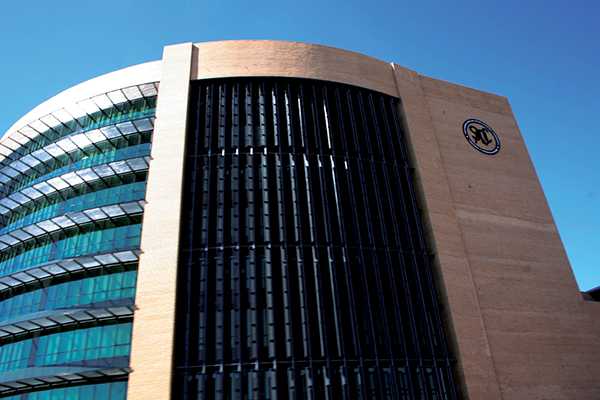SADC internal auditors not independent
Government in Pretoria, South Africa vindicates the Botswana Guardian’s series of exposés over the years that corruption is rampant and the SADC Secretariat is rotting from the top.
Amongst the many findings of the Board of Auditors is that there is possible leakage of bids prior to publication of the bid. An example the auditors give is that upon inspecting the bid Contract No. SADC/ADMIN/ES/02/2017 relating to the construction of the new facilities at the official residence of Executive Secretary, Dr Stergomena Tax, namely Plot 97 in Gaborone, they noted that the date of the issue of documents to bidders is 22nd March 2017.
Upon further inspection of the documents submitted by two bidders, it was noted that Parley Contractors and Civils –the winning bidder, made a board resolution on 20th March 2017 to bid for this contract, which was just two days before the publication of the bid information.
Reliable information provided to Botswana Guardian is that some of the Secretariat leadership is extravagant in spending public resources on projects from which they benefit personally. The construction in question is an entertainment centre and other alterations to the comfortable house.
It is said the winning bidder offered USD218.300 against the available budget of USD 150.000 a matter that leaves SADC with a debt of USD68, 300 in shortfall. It is said that those who authorised the contract are banking on the hope that both the Council of Ministers and Summit will accept the Secretariat’s plea to give extra funds to meet the shortfall.
However, the Auditors have not only recommended that the Secretariat should cancel the bid and issue fresh invitations to all contractors to ensure that the process is not only transparent, but also fair. They said the evaluation committee should inspect the dates of the submission of the bid information in order to check if there are any possible indicators that could be identified.
When it comes to internal control deficiency, the auditors found that the Secretariat did not exercise its duties to ensure that the dates per bid information do not suggest that suppliers were privy to the information that was not publicised.
In his response to the board of auditors, Acting Senior Procurement Officer, Gift Mike Gwaza is reported to have said that the management wish to advise that the tender in question was realised through a negotiated tender procedure. A market survey was undertaken where companies were assessed before they were invited to submit the tender bids under negotiated procedure.
The management advised further that the raising awareness that there will be a SADC tender is not against the SADC Procurement guidelines, but, it is rather in the best practice to inform prospective bidders of future procurement opportunities. All competing bidders were sent full set of bidding documents at the same time and none of them was either advantaged or disadvantaged.
However, the auditors did not budge. Instead, they insist that the bidding documents were sent to all bidders on 22ndMarch, 2017 and the winning bidder had already made a resolution to bid for the tender on 20th March, 2017 before all bidders were informed about the tender, saying this indicates collusive practice as bidders were not aware of this date about the tender and therefore the findings stands.
The auditors have since ordered that the Secretariat should institute independent investigation on how the bid information was leaked and disciplinary action be taken against the perpetrators. Further that senior management should create awareness with the Secretariat about the importance of engaging in a collusive behaviour and confidentiality.
The board of auditors has found that there are many loopholes under the internal control. Amongst others the auditors point that the Secretariat did not ensure that the evaluation of the bids is performed strictly in line with the bids requirements and the procurement policy.
Other findings are that Secretariat did not ensure that the amended procurement policy is adequately reviewed and that it is only reflecting on the changes that were approved by the Council. The Secretariat did not ensure that officials responsible for procurements, the drafting of the terms of reference and evaluation of bids requirements have the necessary skills and competencies to ensure that procurement process are done in line with the procurement policy guidelines.
Under governance, the auditors state that internal audit did not ensure that its independence is not impaired as instances were noted where the head of internal audit and its team members were involved in the bid evaluations for the activities not relating to the internal audit.
The auditors argue that the Secretariat did not ensure that the audit performs its duties independently without interfering with the management responsibilities and duties.





